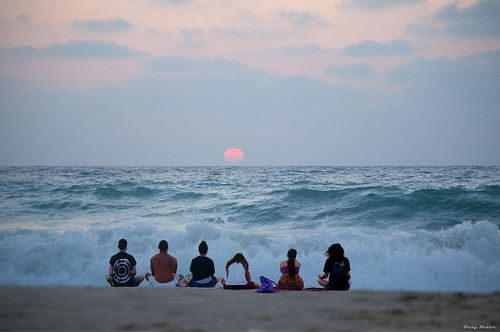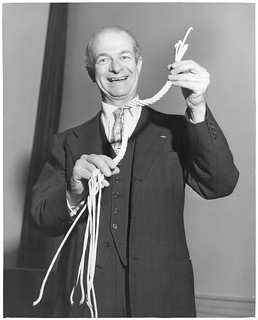I was one of the panelists at a grant writing
workshop for graduate students at the American Studies Association meetings this past fall.
The panel was convened by
Kritika Agarwal and included three panelists:
Maile Arvin,
Monica Martinez, and myself.
This post is a summary of the best tips provided during that meeting and will provide you with guidance and food for thought as you prepare your grant and fellowship applications.

Step 1: Figure out where you are going to apply.
To figure this out, you first need to identify your needs. Do you need a grant – which will provide you with cash to do research or a fellowship – which will pay your salary as you focus primarily on writing?
Graduate students can use grant funding for a variety of expenses, including visiting archives, paying research participants, transcribing interviews, and completing fieldwork. Fellowships, in contrast, are primarily used to subsidize the time you spend writing your dissertation. Instead of having to teach to support yourself while in graduate school, a fellowship allows you to focus all of your work time on writing your dissertation.
There are large granting agencies that have funding for graduate students including the National Endowment for the Humanities, the Ford Foundation, the National Science Foundation, and the Social Science Research Council. However, there are also a plethora of smaller granting agencies that are specific to your field of study.
If you are at a PhD granting institution, there most likely an office on campus where you can get assistance with finding grants. Many times, this office will work with you to come up with a list of grants and fellowships that you can apply for. Many universities also have online databases that you can search to look for funding opportunities.
Kritika made the very practical suggestion that you look at the CVs of people in your field to find out what grants and fellowships they have been awarded. Maile suggested that you ask around in your program to find out what opportunities other students have sought out.
It is important to complete a comprehensive search as sometimes there are societies and archives that offer grants or fellowships you may have never heard of.
For example, did you know that the
German Historical Institute offers fellowships in African American History? Or that
L’Oreal USA offers fellowships for women in science?
Once you have your list of places to target, you can develop a timeline for applications based on their deadlines. You will need to plan far in advance – up to a year before the application deadlines.
Step 2: Prepare the Proposal
Think of your proposal as an argument for why reviewers should recommend your project for funding. Most well-formulated proposals will have the following six components:
1) An opening that draws attention. This often takes the form of an anecdote, a powerful statistic, or a compelling question.
2) A concise statement of what your project is about. The reviewer should know exactly what your research is about within 30 seconds of picking up your proposal.
3) A review of what we already know about the topic. You need to make a case for why your research is necessary. This requires showing that you have done your background research and demonstrating how your study is novel.
4) An explanation of how current literature leads to your research questions. Don’t just say: “No one has ever examined Polynesian birthing practices in this village.” Instead, draw from the current literature on Polynesia and birthing practices to make a case for how the current literature leads up to your research questions.
5) A description of how you plan to answer your questions. Now that you have set up your research questions, explain exactly what your methodology is and why it is the best methodology to answer those questions.
6) A timeline for completion. A successful grant proposal is compelling, creative, and feasible. You need to show that you have thought your whole project through and that you have a reasonable timeline for completion. Reviewers will find it hard to believe that you will write the last four chapters of your dissertation in a one-week residential fellowship, for example.
Competitive applications are crystal clear and free of jargon. They also render it clear how the project is related to the goals and missions of the funding agency. They are convincing in terms of the need for this project as well as the feasibility of the project. They make a clear contribution to research. Finally, they are aesthetically pleasing in terms of the page layout, margins, font, and headings.
If you know someone who has won the competition you are applying for, you should ask them if you can read their proposal. That will give you a good sense of what a successful application looks like.
Step 3: Prepare for Submission
You should never submit your proposal without having at least one person look over it. Ideally, you should get feedback from several people. You can get feedback from your peers, from your adviser, from the grant office on campus, and from friends who are not in your field.
Before you submit, review your application to make sure that you have followed the directions exactly. Have someone with a good eye for style and grammar review your proposal to make absolutely sure that there are no stylistic or grammatical or typographical errors.
Once you submit your proposal, congratulate yourself for having formulated a proposal and plan for your research.
Writing a clear and concise statement of your research project and plan for moving forward will help you with moving your research forward, regardless of whether or not you win the competition. In addition, you can repurpose that statement for other grant and fellowship applications. You also are likely to be able to revise that statement and put parts of it in your dissertation – particularly in the introduction.
It is always fantastic when you are awarded a grant or an application. But, it is also important to keep in mind that the only way to get a rejection is to put your work out there. Every rejection you get is a signal that you are stretching your boundaries. It also means that you are one less rejection away from reaching your goals!







